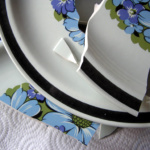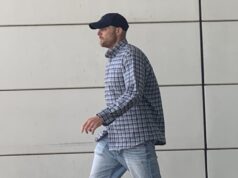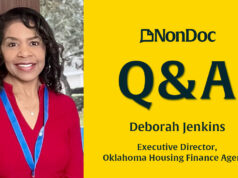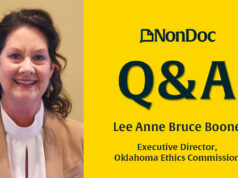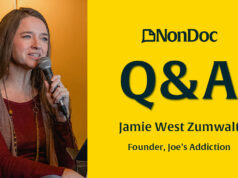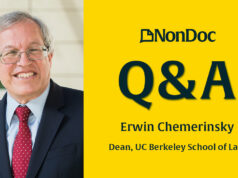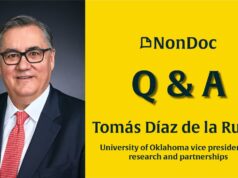FAIRFIELD BAY, Ark. — I recently wrote the commentary, How do you know when it’s domestic violence? for NonDoc, which shared a glimpse of my personal experience on the topic. As a result, I received several messages from women with similar stories and even more emails from women with questions.
Questions like these: When he calls me a loser, is that abuse? Sometimes he says I’m boring and lazy, but sometimes I am … right? He tells me he hates me, that I am dumb and useless. But people say things they don’t mean when they are angry. He doesn’t mean it. Does he?
In my relationship the verbal and emotional abuse was worse (to me) than the physical abuse. A bruise can heal, but the psychological toll I paid caused severe depression and suicidal thoughts. I experienced symptoms of arthritis, my hair fell out, and I was constantly exhausted.
Part of my healing process was a trip to the Oklahoma City YWCA, and I wish I had gone sooner.
When I did finally go, I met with community advocate Alexandra Stewart and completed their interview and evaluation process. Through a series of in-depth questions, Stewart was able to evaluate my situation and provide a very eye-opening perspective on the kind of abuse I was enduring as well as determine the level of danger I was in. On a scale of 1 to 20, with 20 being the highest level of danger, I totaled an 18.
As Domestic Violence Awareness Month comes to a close, I reached out to Stewart via email to expand on this topic for NonDoc readers and she was kind enough to answer some questions for all of us.
Questions and responses have been edited lightly for structure and style.
The YWCA is a resource for victims to turn to for assistance and guidance. What is your main goal regarding domestic violence?
The YWCA USA’s mission is to “eliminate racism, empower women, and promote peace, justice, freedom, and dignity for all.” The Oklahoma City branch is only a small part of the YWCA as a whole, and we strive to encompass this mission in all of our services.
How is the “intake and evaluation system” beneficial to someone who is potentially in a domestic violence situation?
Many victims we see during our intake process may not know that domestic violence is much more than physical abuse — it’s a system of power and control that leaves lasting marks on an entire family. While physical violence leaves the most visual indications, domestic violence also comes in the form of emotional, verbal, psychological, financial and sexual abuse. Many who are in abusive relationships may fail to recognize that if they’ve always been conditioned to think domestic violence is purely physical.
Our current evaluation system reflects the myriad of experiences that our clients may have had with domestic violence and allows us to evaluate how much danger a client is in, how extensive the abuse has been and gives us an opportunity to emphasize that they are not alone.
Can you offer a quick checklist for people reading this who might be wondering if what they are experiencing is abuse?
Oftentimes it’s hard to ask ourselves if we think we’re in an abusive relationship because we want things to be ideal with the person we’re with. But it is important to look at how you feel and to look at the actions of your partner.
RELATED
How do you know when it’s domestic violence?
by Angela A. Arcos
You should never be made to feel like you are crazy, to feel afraid of your partner, or to believe that you deserve to be hurt or mistreated. If your partner is excessively jealous or possessive, attempts to control your actions and daily life, belittles you, forces intimacy, limits your access to resources, threatens to commit suicide or take the children away to get what they want, then you should seek out a local domestic violence center and speak to them about your experiences. They can offer you the resources and guidance to reach a safe place and help you decide what course of action is right for you.
Does the YWCA offer counseling services? What are the benefits of counseling for survivors of domestic violence?
While the services offered by each YWCA vary greatly, the YWCA Oklahoma City offers counseling services specifically for domestic violence, sexual assault and trauma. We find that clients can benefit greatly from one-on-one and group therapy sessions. Being in a safe place with a trained professional who knows their experiences are valid and life-altering allows our clients to move forward and heal from the trauma that has oftentimes dominated their lives. Aside from being able to verbalize their experiences and feelings with an empathetic listener, they utilize techniques that help anchor them to reality during flashbacks or triggering episodes. This makes the hold of the trauma lessen over time and aids in the healing process.
Are there any factors that are essential to the victim’s success when leaving a violent situation?
A victim will leave their abusive partner an average of six to 11 times before leaving permanently, and the most common barrier to leaving is lack of economic resources. Domestic violence affects women more often than men, and women may have trouble supporting themselves outside a two-parent household if they’ve taken on the role of primary caretaker. Many women choose to stay because they don’t have the resources to care for their children on their own.
Economic empowerment (including job readiness, GED/higher education and financial planning) is a major part of the work we do at our branch because we believe that providing women with the tools to provide for themselves will do a great deal to help break the cycle of violence that often persists from generation to generation.
What is the best part of your job?
Working in social services is oftentimes very challenging, but I wouldn’t be doing it if the difficult times weren’t met with moments that were equally as gratifying and fulfilling. I am blessed to have a job that allows me the opportunity to make a true difference in the lives of other people. A large part of my personal happiness comes from knowing that what I do for a living helps other people.
If you are experiencing abuse, or if you’re not sure and have questions, please call your local YWCA.










